I have been a student of Greek history for many years. When I was a medical student and later a surgery resident, I kept a copy of J.B.Bury’s “History of Greece to the Death of Alexander” on my bedside table as reading material for relaxation. I have read it several times.
Another source of pleasure has been the novels of Mary Renault, the pen name of Eileen Mary Challans. Sh wrote a series of historical novels which won awards and which provided a more intimate view of Greek society in the classical era. Some of her novels provide a more sympathetic view of homosexuality than I have found anywhere else but that is not the attraction. Her history sounded like something written by one who lived it.
Another favorite novelist is Helen MacInnes who wrote novels of adventure set in and after World War II. Two of them were about places in Greece and one of those, Mykonos, is a favorite spot.
Her novel describes this harbor and, while a new cruise ship terminal has replaced some of her story, the harbor looks just as she described it.
The story, titled “The Double Image” describes a tiny square in the town that sounds exactly like this one looks.
We are looking forward to this trip with some trepidation, however. Why ? Because Greece may be heading into serious trouble.
Since December, Greeks have been preparing for a weekend such as this, pulling more than 30 billion euros out of banks. Week after week, the Bank of Greece borrowed banknotes from the rest of the continent to replenish this hoarding of the one asset Greeks still trust — cold, hard cash. Its liabilities to the rest of the euro area for the excess physical cash it has to put into circulation quadrupled between December and April, the last month for which there’s available data.
In November of 2012, there was rioting in Athens and it was about proposed austerity.
On the same day that Greece’s parliament passed harsh new austerity measures as part of a multi-billion euro rescue package, workers cleared wreckage from burned-out buildings damaged during a round of intense riots the day before.
The unpopular bailout deal requires dramatic cuts in wages, pensions and jobs, according to Reuters, and Sunday’s protests saw the worst violence in Athens in years.
Since those riots, a new radical leftist government has been elected that has vowed to defy the EU and austerity.
Greece’s new leftist government opened talks on its bailout with European partners on Friday by flatly refusing to extend the program or to cooperate with the international inspectors overseeing it.
Prime Minister Alexis Tsipras’ government also sacked the heads of the state privatization agency after halting a series of state asset sales.
The politically unpopular policy of privatization to help cut debt is one of the conditions of Greece’s 240-billion-euro bailout that has imposed years of harsh austerity on Greece.
Now, the moment of truth approaches and what will happen ?
Everything comes together on Monday [Monday June 22 !]. Greek Prime Minister Alexis Tsipras, back from a visit with Vladimir Putin in St. Petersburg, will spend his weekend coming up with a proposal to take to a Monday showdown with euro-area leaders.
A deal there is key. The bailout agreement that’s kept Greece from defaulting expires June 30. That’s the day Greece owes about 1.5 billion euros to the International Monetary Fund.
In an interview published Saturday in Brussels-based l’Echo newspaper, Greek Finance Minister Yanis Varoufakis warned that the ruling Syriza party could be replaced by neo-Nazis if Greece ends up defaulting and leaving the euro.
This may be standard leftist scare tactics but what will happen ? We have planned the trip to anticipate potential trouble in Athens. I have been to Athens before and have been to the Acropolis and the Parthenon.
Annie much more photogenic than I am and this was taken when she was 14 and standing on the Acropolis.
The plan is to fly to Athens and then spend only two nights there. I have planned a side trip to another place described in one of Helen MacInnes’ novels, Decision at Delphi, which is set soon after World War II and describes Sicily as well as Athens and Delphi. Delphi is quite high in the mountains north of Athens and involves some climbing so we will spend most of that time in the Delphi Museum.
Important finds included sculptures from the Temple of Zeus, the Nike of Paeonius, the Hermes of Praxiteles and many bronzes. In total 14,000 objects were recorded. The finds were displayed in a museum on the site.
Today, the Museum contains treasures from those excavations.
The museum itself.
And the interior with the exhibits. The trip can be made in a day and I have made arrangements.
On the way to Delphi, I want to make a short side trip to see the Lion of Chaeronea. This statue was erected over the common grave of the Sacred Band of Thebes. This was a unit of sworn lovers, probably all homosexual but in the fashion of classical Greece in which women were closely held in harem-like seclusion and men tended to adopt a pattern of an older man with a younger boy which might be merely sexual or it might be a sort of apprenticeship in arms. The Sacred Band had never been defeated in battle until that day, August 2, 338 BC. On that day, the Sacred Band was annihilated by the army of Philip II of Macedon, the father of Alexander the Great. The Band was buried in common grave and the lion statue erected over their grave. It was found by British tourists around 1900 and excavated and restored. Beneath the site were found the skeletons of nearly 300 men.
The battle,according to accounts which survived, was won when the Macedonians’ right flank conducted a sudden retreat, drawing the Athenians out of line. The Sacred Band was destroyed holding the line. I want to see their grave.
After that day trip, we plan to fly to Thessaloniki, a city east and north of Athens to visit the tomb of Philip II, the father of Alexander and winner of the battle of Chaeronea.
The remains in the tomb have recently been confirmed as those of Philip II
The tomb, itself, is well preserved and restored. The town of Vergina is near Thessaloniki and too far from Athens to drive in a day.
From Thessaloniki, we will fly to Crete and spend a few days near the Palace of Knossos and its museum.
The museum and the palace ruins should keep us busy for five days, then we fly back to Athens for one night and catch our flight to London and home the next day.
Or so the plan goes. I hope we don’t have to cancel. I have postponed this since last winter to watch the Greek situation.
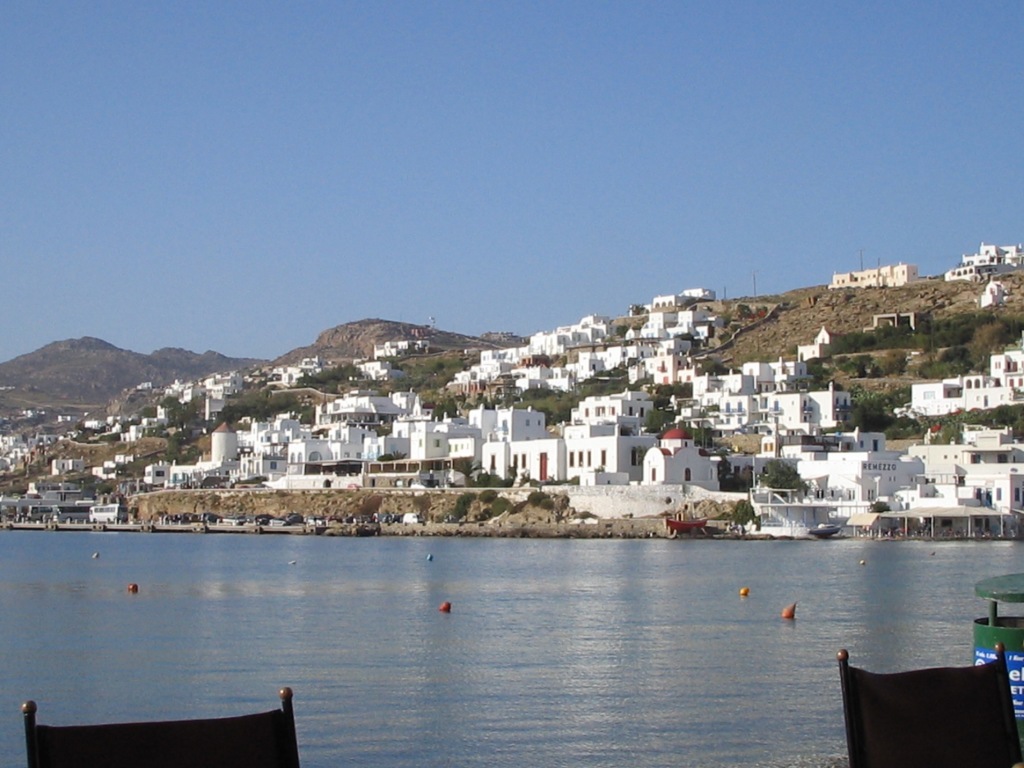
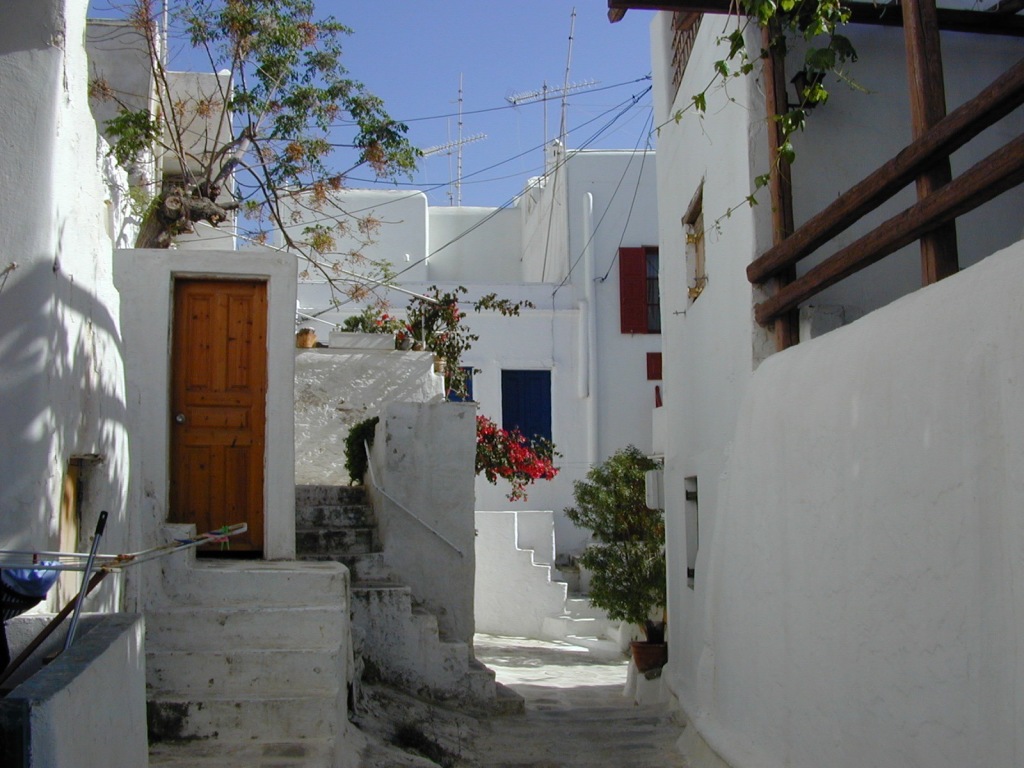
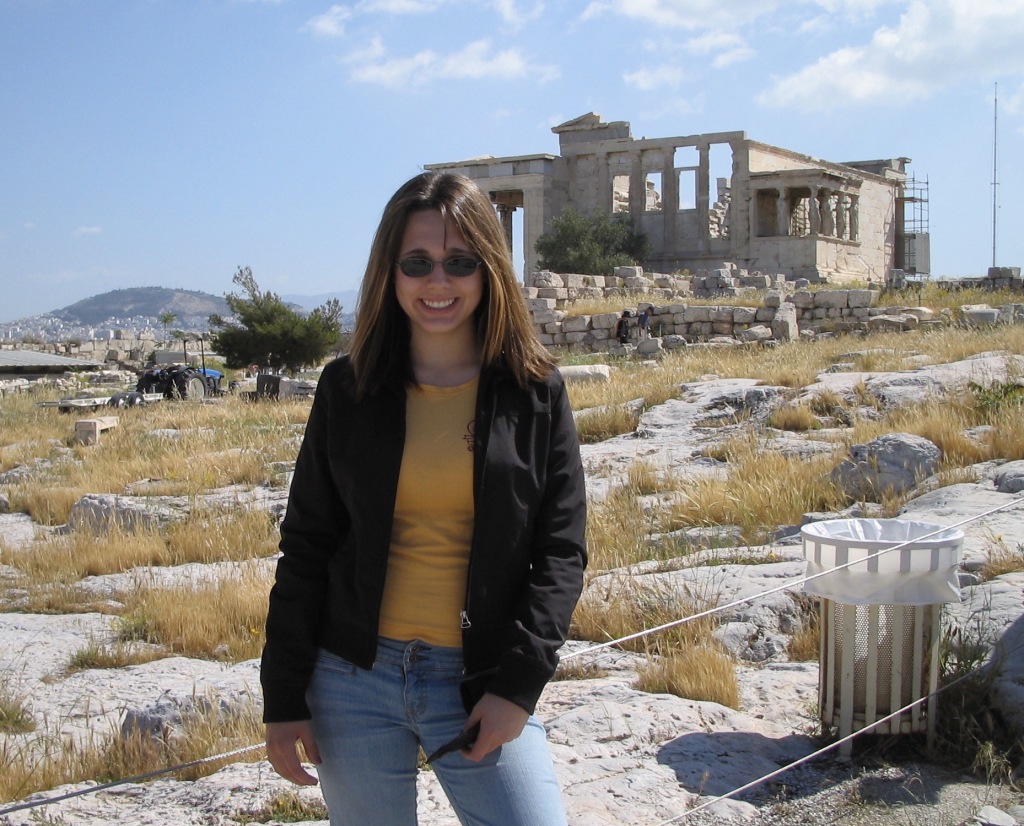
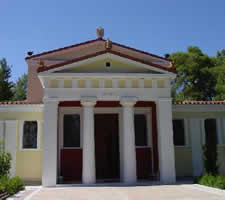
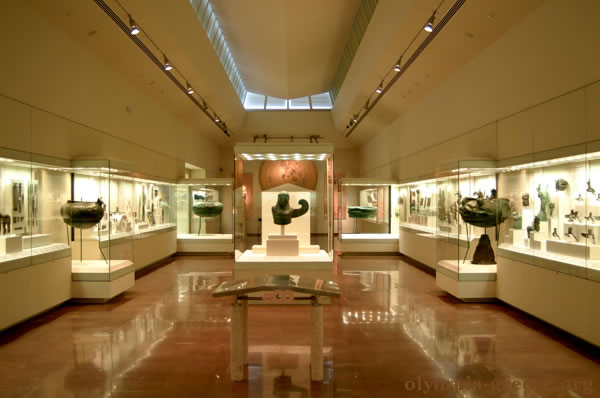
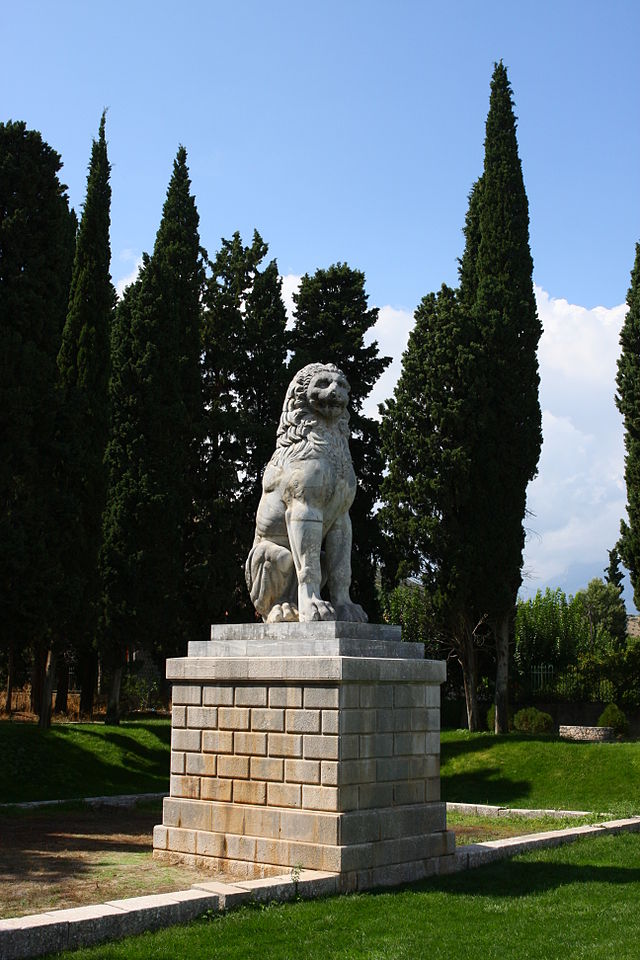
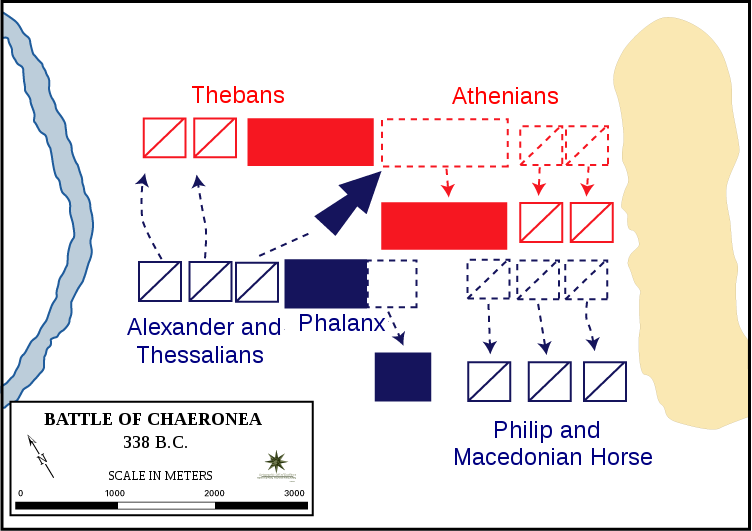
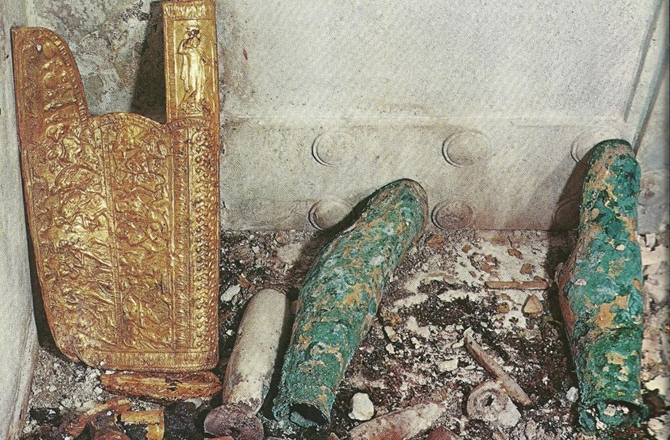
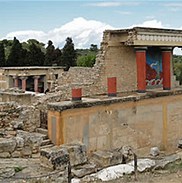
How splendid, Mike! The Acropolis is wonderful – and so is the old Agora just below. I used to go there, and walk up the hill through historic old Athens on my days off. And Delphi is marvelous, too. Another mystery/romance writer who wrote beautifully about Greece was Mary Stewart: My Brother Michael was set in Delphi, and The Moonspinners on Crete. Even though I visited Delphi thirty years after she wrote about it – Delphi was still very much as she had described it in the late 1940s, or early 1950s.
I understand your desire to go, despite the risks, and envy you the trip to Vergina. I, myself, would find some way to make the extra trip to Thermopylae too; but that is just me.
By September, we may have some idea just how bad it is going to be in both Greece and the EU. Not to mention here. Take great care, and always have a fallback plan for exiting from any phase of your trip.
We are living in interesting times, and do not want to lose your voice.
By fall, Greece should be a real travel bargain.
“always have a fallback plan for exiting from any phase of your trip.”
The flight goes to London and we could always divert to Paris,, for example. “We’ll always have Paris.”
“By fall, Greece should be a real travel bargain.”
Like Egypt and Tunisia, I hope not. Our hotels are paid for but could possibly be renegotiated. Not all but some. Dinners are the only part not paid for. That may be cheap or it may be impossible, especially in Athens.
Thanks for the great images. My wife wants to go, and I’d sure like to see some of those sights. Friends of ours honeymooned in some of the islands and thought they were beautiful. They mentioned that Athens left a bit to be desired and found it rather dirty and unpleasant. But, people told me Paris was rude and unpleasant and we both found it wonderful. I’d imagine the tourist areas to be shielded for the sake of the income they generate, but who knows…some are predicting a nasty summer world-wide. I hope and pray they are wrong.
My European travels, with one exception in Germany 1992 – were all courtesy of the Army in the early 70s. Went to Greece for a week – I guess, looking back, I was fortunate to be able to go to the Acropolis and inside – heard it is closed now
@Sgt Mom: Mary Stewart made so much from her books that the salary of her husband Fred, Professor of Geology at Edinburgh, was said to pay for the gin and nibbles.
Good for her, Dearie – she really did write so beautifully about Greece. I’m afraid that I like her early stuff rather than the Merlin/Arthurian stuff.
The first time I was in Paris was about 1983 and they were rude. I decided not to return and we used to go to Britain at least once a year. I went to Paris again 1995 and it seemed friendlier. Since about then, I’ve been back quite a few times and they have gotten friendlier every time. I think they figured out that tourists were avoiding France,
Annie loved France so much she majored in French in college and hoped to get a job there. I’ll post some more photos on my blog,
Sounds like a wonderful trip and I envy you taking it.
At least George Will thinks it will not be a problem.
I hope he is right.
Mike K
The first time I was in Paris was about 1983 and they were rude. I decided not to return and we used to go to Britain at least once a year. I went to Paris again 1995 and it seemed friendlier. Since about then, I’ve been back quite a few times and they have gotten friendlier every time. I think they figured out that tourists were avoiding France.
I have never been to France, but from my experience with the French in the US and in Latin America as fellow tourists, roommates, and employer/client [I spent some time as a relief person in Colombia on a drilling rig which had Elf Acquataine as the operator], I have seen a pattern of arrogance in the French. From my experience with them, the French are not my favorite people.
Judging from my experience in the US with people of Greek origin, I suspect that the go-getters among the Greeks emigrated to America, leaving the sluggards behind.
“I suspect that the go-getters among the Greeks emigrated to America, leaving the sluggards behind.”
An Irish friend of mine told me much the same about the Irish and he said that most of them were not happy about Americans visiting and looking for “roots.” He said the Irish all know that “the cream left.”
I suspect our positive experience in the uber-left and trendy 7th Arrondissment was due to our appearance, patience and my wife’s high school French. I’m reminded of checking into our hotel. We were jet-lagged and worn out, but she politely stumbled along in a rudimentary French, and then the clerk began to reply in perfect English. Juxtapose this with an American at the next clerk station, a large blonde man with an accent from the South, who was not rude, but spoke in a direct manner. Almost instantly the staff lapsed into a French version of the “no habla” game. I’m not sure how it ended. We continued this pantomime for the rest of our stay, and it seemed to serve us well. I’m not sure if in the nasty, post 2008 era we might fare as well though.
They are trying to scare me and they are succeeding. We have planned only two nights in Athens but even that may be too much.
If the worst happens, our flight stops in London and we could always divert to somewhere like Paris or stay in London.